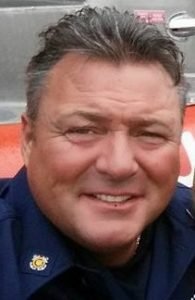 I had the opportunity to sit down with Steve Georgoules, the Co-founder and CEO of RS Five, a Chicago insurance restoration company based in Des Plaines, Illinois serving the greater Chicagoland area. Steve has been an entrepreneur all his life and has been a full-service construction contractor for over 25 years. Five years ago, he saw a huge need in the marketplace and decided to break out into the insurance restoration industry and do something about it.
I had the opportunity to sit down with Steve Georgoules, the Co-founder and CEO of RS Five, a Chicago insurance restoration company based in Des Plaines, Illinois serving the greater Chicagoland area. Steve has been an entrepreneur all his life and has been a full-service construction contractor for over 25 years. Five years ago, he saw a huge need in the marketplace and decided to break out into the insurance restoration industry and do something about it.
In today’s article, Steve Georgoules demystifies what Insurance Restoration is for homeowners and businesses by sharing insights into the world of storm damage, being made whole by insurance companies and the pitfalls many of Chicagoland’s homeowners make.
Markus: Welcome Steve, I appreciate you spending the time with our readers today. Let’s jump right into it. Tell us about RS Five and how you’re helping your clients.
Steve: My partner and I having been involved in contracting for many years, and also in our other industries, we definitely saw as the storms continued to get worse throughout the country, we saw a rise in the storm chasing companies, and we just saw value in getting directly to the insurance restoration business as a local contractor to protect our friends and neighbors from being taken advantage of, and really getting a quality inspection done properly through an accredited, certified specialist in the industry.
Markus: That’s fantastic. I’m sure your neighbors and friends and the people in the local area appreciate that. Would you describe one big problem that you specialize in solving?
Steve: With all of these storms we have, we tend to get a lot of hail and strong winds in the Midwest, and that causes very minute but rather catastrophic damage to the exterior of people’s homes and their businesses.
The damage can be very small and really can’t be detected by the naked eye, but eventually, over time, the damage causes a breakdown in the structure of the materials that protect your home and it can start to cause leaks inside the home. If the leaks aren’t dealt with properly, it could lead to mold, it could lead to mildew, and those kinds of pathogens can tend to make the family or the workers sick.
So the key is to have your home inspected annually, check for these types of damage, and to catch it before it can become a health hazard.
Markus: That makes sense. What’s the overall outcome for your clients to achieve?
Steve: Well, what we’d really like to see is local contractors like us take the extra steps to become storm restoration companies and get the certifications and the proper training to understand this worsening type of event, the damage that it causes, and for the homeowner to be properly insured. As well as help the homeowner or the business owner realize the importance of getting a yearly inspection to stay ahead of it.
Because what we’re finding is a lot of individuals don’t realize that this type of damage, if caught timely, will be covered by their insurance company. And their insurance company wants to get ahead of it. For example, if there’s hail damage to a roof, they would like to replace the roof up front when it’s recently happened, because if left over time, the shingles or the roofing materials are going to break down and the water is going to penetrate, and get into the home and start to damage the insulation, the drywall, then the paint, then the flooring, contents of the residence or building, and it just gets way more costly for them.
It’s much better, not only for the homeowner but for the insurance company, to catch it up front and keep the costs down.
Markus: So you’re really making a difference in the homeowners’ life and your clients’ lives. That’s amazing.
Steve: Absolutely. Getting out there and educating people, and detecting this type of damage, it is truly making a difference. We see it time and time again, the homeowner is really surprised to learn that it’s covered by insurance.
A lot of times, we get looked at like, “Are you sure this isn’t a scam? Are we doing something illegal here?” What you need to realize is when we do the initial inspection and we find what we find, that it is a scientific, forensic inspection.
We work with meteorologists. When we do the inspection, we detect the directionality of the storm, the type of damage that has been done, the size of the damage and the consequence of the storm, and we help the clients file the claim with the insurance company. Then the insurance company is going to send their own adjuster out to look at what we found. They’re trained to detect this kind of damage as well. We’re there during the time of inspection and we go through the home with the insurance company and come to an agreement on what needs to be replaced and a price. So it’s a legitimate way of finding the damage, and the insurance company is involved in the whole process. We’re basically the advocate for the homeowner.
Markus: That’s really a very thorough way of going through and making sure that not only does the homeowner protect their interests – because let’s face it, the home is usually the biggest investment in most people’s lives – as well as helping keep the insurance companies’ cost down by catching it early, which is a win-win.


